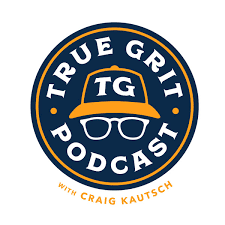We’ve been talking about the importance of forming a life team to help with your intentional growth in the personal and professional realms. Along those same lines, I now want to talk with you about the idea of process groups.
What is a Process Group?
You already know what a group is – pretty self-explanatory right?
In every group, there are always two elements present: the content or subject matter, and the process. The process element is where people talk about how they feel, and not just what they think. People talk about what things are like and what their needs are.
For example, if you go take a course at a college, it’s pretty much nothing but content. By comparison, if you go to group psychotherapy, it’s pretty much nothing but process.
For our purposes, I’m talking specifically about the groups where process is dominant, with people talking about their needs, feelings, challenges, and their relationships with each other. This fits into the concept of a life team in many respects.
In a process group, 5-10 individuals meet face to face to share their struggles and concerns with 1-2 trained professionals. The power of process groups lies in the unique opportunity to receive multiple perspectives, support, encouragement and feedback from other individuals in a safe and confidential environment.
Why Are Process Groups Important?
Simply put, people are the fuel of life. We know this. When we are healthy, it’s because we’ve got good people in our lives who nourish us with encouragement, wisdom, acceptance, safety, vulnerability, empathy, and challenge. It’s a little like a healthy, balanced diet.
Process groups are a great place to get the nutrients we need to live a successful and healthy life.
It’s not just facts and skills. We need those things, but it’s also people really getting deep with each other and sharing the nutrients of life. It becomes mutually healthy and beneficial concurrently.
What Makes a Good Process Group?
Let me give you three key aspects of a really good process group.
Full disclosure: I have facilitated close to 5,000 process groups myself, so I’m a deep believer in them. I’m a process group junkie because I see the power, not only in my own life, but in the people and companies I work with.
3 Tips for a Healthy Process Group
- It needs to be facilitated. Someone has to be in charge. The group must have somebody who has specific training in doing process groups. It can be a professional or a therapist or someone licensed. Just someone who knows their 10,000 hours of how to properly facilitate a process group.
- It must be a safe space. Similar to a life team, process groups are about opening up about your hurts, challenges, and insecurities. There are struggles you have and you need a safe place where you can open up about them in a judgment-free zone.
- Respect for your needs and emotions. You know, there’s not many places in the world where our needs and emotions are respected. The group has to be a place where people say, “I wanna hear the challenge.” You don’t have to just give the good news. You can say you’re overwhelmed, embarrassed, or ashamed. It’s okay and admitting these feelings will be welcomed by people that care about you.
How Can a Process Group Fit In Your Life?
I look at process groups as a family, really. People were designed to be in families. You have your family of origin or your biological relatives. Your process group, much like your life team, is secondary to your family of origin and offers different nutrients.
The real difference is that your process group family is made up of people that have the love, wisdom, and structure you maybe didn’t get from your biological family. Your process group sort of fills in the gaps left by your biological family.
It is important to include people in your life that you’re not biologically related to for growth support. For more information on creating a process group, watch the topic video inside the TownsendNOW video library.







